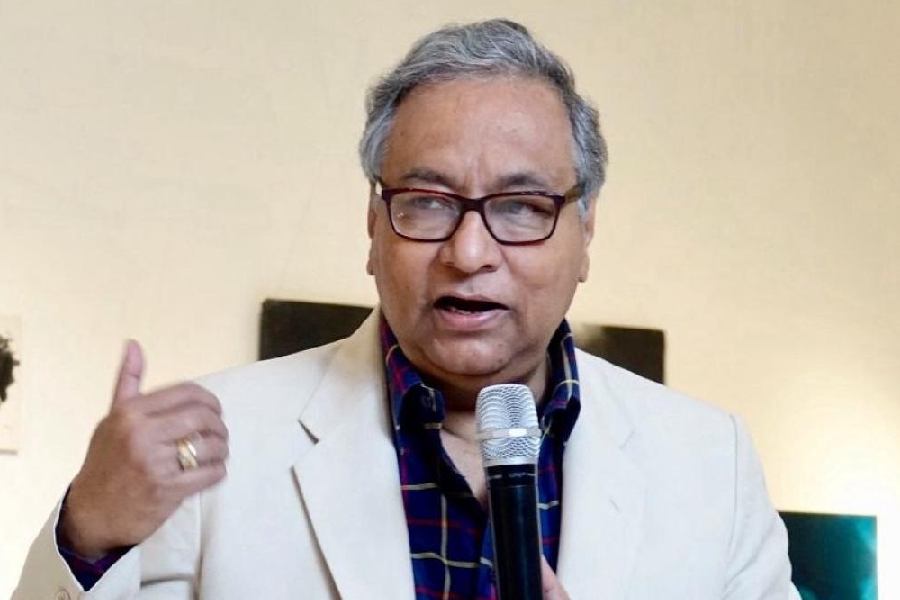Jawhar Sircar — who resigned from the Rajya Sabha, Trinamool Congress and active politics last week — on Wednesday said he was relieved to have quit and should not have gone there to begin with.
He then tore into the “racketeering raj” running the nation, the cleansing of which, he urged, must begin in Bengal.
At a Presidency University event, the 72-year-old retired IAS officer said: “Such a racketeering raj is on…. Some rackets are running the whole nation.”
“My state is Bengal, we will start the cleanse here,” said Sircar at the event at his alma mater, titled “For Tilottama, For a Transparent Judicial Process”, organised by the Presidency Shikkha Samaj. It was a convention to seek justice for the RG Kar victim, zero tolerance on corruption and improper behaviour towards women.
After the event, on his way to Delhi to pack his bags for a permanent return to Calcutta, Sircar told this newspaper that the overwhelming support for zero-tolerance on corruption was a standout feature of the RG Kar movement.
“It has to be sustained as a social movement. Because the political system has become so corrupt all over India – all over this nation – that unless people stand up like this, in social solidarity, there is absolutely no hope,” he told The Telegraph.
“I gave examples (in the Presidency address), that by selling an airfield, they steal Rs 10,000 crores (outside Bengal). The petty sand mafia or some such element (in Bengal) will never be able to get close. But we are not talking scale or terms, instead, what can society — the civil society — do to stand up to it,” he added.
“The political system has become so rotten, so corrupt in India… it’s shocking. So blasé! People don’t even think about it anymore. It’s one of the reasons I quit.”
The former Union culture secretary and Prasar Bharati chief executive officer — who has never pulled punches while taking on the Narendra Modi regime inside and outside Parliament — told the audience of hundreds how relieved he was following his decision to quit.
“You, of course, know why I quit. I am so very relieved. I should not have gone in the first place,” said Sircar, who could have retained the Rajya Sabha seat till the summer
of 2026.
He resigned last week in anguish against the endemic culture of “corruption” in Bengal’s ruling dispensation, and the “clumsy” handling of the RG Kar tragedy and
its fallout.
In his letter to chief minister Mamata Banerjee, Sircar had raised concerns over the state’s alleged mishandling of the protests seeking justice for the raped and murdered RG Kar doctor. He had underscored various issues he confronted during his stint in the party, particularly his distaste for the “corruption” and expressed gratitude for the Upper House stint.
He had told this newspaper that his aim was to give a wake-up call to Mamata for course correction, by committing the “political self-immolation”, and that a long, persuasive call from her — despite their decades-long “bond of siblings” — couldn’t change his mind.
“This (the protests in the wake of the tragedy) should not be painted with political colours. It’s a spontaneous expression of popular angst… it keeps coming back. It cannot be attributed solely to one rape-and-murder, one heinous crime. That was a trigger point. The reality is that pent up angst and anger was inside people,” added the political science graduate from the then Presidency College. Sircar did his schooling from St. Xavier’s College, and after Presidency, completed two Master’s Degrees from Calcutta University, in History and Sociology. While serving as an IAS officer, he studied at the Institute of Development Studies, University of Sussex, and the Queens’ College, Cambridge University.
Sircar attacked the culture of corruption.
“Several things taking place… which I mentioned in my letter (to Mamata). People becoming rich overnight, becoming dadas overnight…. Many asked me, ‘did it not happen before this?’ I am saying yes, it did. But it has now reached an extent that is beyond tolerable limits...,”
he said.
“One dilapidated balcony… if it has to be repaired, something must be given (to Trinamool). For anything to be done, something must be given. Syndicates, everywhere,” he added. “This must be dealt with. If that lesson is learnt from this popular fury, that would be the biggest gain.”
Sircar said he hoped the movement would also lead to a set of key guidelines from the apex court, along the lines of the 1997 Vishaka Guidelines, to ensure the safety of women at the workplace. “That will be the first major victory of this movement,” he added.











